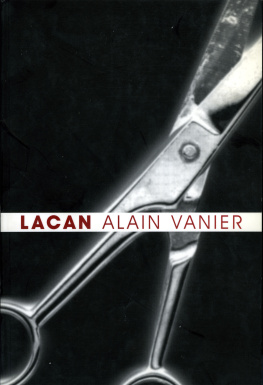Heraud Jean-Alain - Creative Management of Complex Systems
Here you can read online Heraud Jean-Alain - Creative Management of Complex Systems full text of the book (entire story) in english for free. Download pdf and epub, get meaning, cover and reviews about this ebook. year: 2019, publisher: John Wiley & Sons, Incorporated, genre: Politics. Description of the work, (preface) as well as reviews are available. Best literature library LitArk.com created for fans of good reading and offers a wide selection of genres:
Romance novel
Science fiction
Adventure
Detective
Science
History
Home and family
Prose
Art
Politics
Computer
Non-fiction
Religion
Business
Children
Humor
Choose a favorite category and find really read worthwhile books. Enjoy immersion in the world of imagination, feel the emotions of the characters or learn something new for yourself, make an fascinating discovery.
- Book:Creative Management of Complex Systems
- Author:
- Publisher:John Wiley & Sons, Incorporated
- Genre:
- Year:2019
- Rating:5 / 5
- Favourites:Add to favourites
- Your mark:
- 100
- 1
- 2
- 3
- 4
- 5
Creative Management of Complex Systems: summary, description and annotation
We offer to read an annotation, description, summary or preface (depends on what the author of the book "Creative Management of Complex Systems" wrote himself). If you haven't found the necessary information about the book — write in the comments, we will try to find it.
Creative Management of Complex Systems — read online for free the complete book (whole text) full work
Below is the text of the book, divided by pages. System saving the place of the last page read, allows you to conveniently read the book "Creative Management of Complex Systems" online for free, without having to search again every time where you left off. Put a bookmark, and you can go to the page where you finished reading at any time.
Font size:
Interval:
Bookmark:

Smart Innovation Set
coordinated by Dimitri Uzunidis
Volume 19
Jean-Alain Hraud
Fiona Kerr
Thierry Burger-Helmchen

First published 2019 in Great Britain and the United States by ISTE Ltd and John Wiley & Sons, Inc.
Apart from any fair dealing for the purposes of research or private study, or criticism or review, as permitted under the Copyright, Designs and Patents Act 1988, this publication may only be reproduced, stored or transmitted, in any form or by any means, with the prior permission in writing of the publishers, or in the case of reprographic reproduction in accordance with the terms and licenses issued by the CLA. Enquiries concerning reproduction outside these terms should be sent to the publishers at the undermentioned address:
ISTE Ltd
2737 St Georges Road
London SW19 4EU
UK
www.iste.co.uk
John Wiley & Sons, Inc.
111 River Street
Hoboken, NJ 07030
USA
www.wiley.com
ISTE Ltd 2019
The rights of Jean-Alain Hraud, Fiona Kerr and Thierry Burger-Helmchen to be identified as the authors of this work have been asserted by them in accordance with the Copyright, Designs and Patents Act 1988.
Library of Congress Control Number: 2018962282
British Library Cataloguing-in-Publication Data
A CIP record for this book is available from the British Library
ISBN 978-1-84821-957-1
Everything is becoming more complicated; we must go ever faster!
This rather common statement will certainly remind readers of similar ones they have heard in the media or during a conversation. There is undoubtedly a shred of truth in these popular expressions, but to rationally analyze their meaning, we must first distinguish complication from complexity. In fact, the state of being complicated is different from that of complexity the first is a linear progression even when it does not look straightforward, whereas complexity is an emergent state novel outcomes emerge over time that were not foreseeable beforehand.
This concept is most interesting to consider when managing organizations, as it requires distinctive planning, managing and operating techniques. Complexity is born of interactions between a multitude of actors that are possibly aware but often unaware of the fact that they belong to the same system, with the formation of feedback loops that render the systems evolution largely unpredictable. Complex systems have very specific properties, particularly the nonlinear response to stimuli that must be taken into account by the managers who are in charge of regulating or steering them. Whereas an engineer can manage a complicated system (often by way of technology), it is an exaggeration to the claim that the administration of a complex organization is managing the system.
Our planet is a complex system, as is our body, the organizations that we create, or our social and economic systems. Complex systems can often be analyzed as a system of systems. For example, a company is a system within the sector-specific system, i.e. of its partners, suppliers and clients, the institutional framework, etc. It is no simple task to define the boundaries of the system being observed (or steered) as complex systems are embedded within other complex systems. However, in order not to become overwhelmed we must deal with any question or specific problem by defining and determining which part of the system to investigate and at what level of scale. There are also a number of methodological choices that must be made at the outset in order to better understand and act.
As the complexity of systems increases with the number of connected elements, the contemporary world generates a veritable explosion in complexity taking into account the digital revolution and the Internet. The globalization of technology, economy and lifestyles brings not only attempts to simplify and standardize (in order to reduce complexity), but also an enormous development of complex interpersonal relationships around the planet, which renders the overall system terribly unpredictable.
Throughout this work, we will define complex systems with greater precision. We will evaluate their adaptive qualities, reactivity to changes in the environment and their resilience. We will also investigate the relationship between complexity and creativity: a complex system functions in a largely self-organized way and this can lead to the creation of novelty, emergent outcomes and unexpected properties, which is another form of creativity. As one can imagine, managing a complex system requires qualities such as open-mindedness, attentiveness and imagination. Those who manage and lead complex systems are acquainted with ambiguity and understand that systems (and people) can be steered but not controlled. This creative management must be capable of interpreting weak signals that have a heavy bearing on the future; they must be able to adopt behavior that is entrepreneurial rather than administrative. The variety of situations managers may be faced with obligates them to be creative, to use fewer fixed management rules and more incentivizing mechanisms to make the system adaptive and to encourage rather than block the systems intelligence.
As such, we prefer the following expression to the one given at the start of this chapter:
Everything is becoming more complex; we must be ever more creative!
This work consists of five chapters. The first chapter, written by Jean-Alain Hraud and Thierry Burger-Helmchen, presents an overview of complex systems and some motivations that managers may (must) follow while managing these particular issues. This will lead us to managerial and economic considerations, for example, by revisiting classical subjects from economic theory, such as individual rationality or evolutionary processes. In management, we will mention new concepts such as exaptation, which generalizes adaptation.
The second chapter, written by Jean-Alain Hraud and Fiona Kerr, focuses on one of the primary properties of complex systems: their constant evolution. Complex systems do not present a stationary, immutable system. They are dynamic or, more precisely, evolving. With the help of examples taken from the course of enterprises or more general examples, the authors will gradually outline the competencies necessary for a manager in this kind of environment: being able to think in a complex manner.
The third chapter, written by Fiona Kerr and Jean-Alain Hraud, is dedicated to weak signals. After having defined these discrete facts that bear on the future, they will highlight the need to establish safety nets, identification and filtering devices, and the ability to interpret weak signals within organizations. Complex systems have phases, points of attraction that, through self-organization or a deliberate strategy, may be identified and used. The system the manager must steer may be labeled as chaordic an intermediate situation between order and chaos as there are powerful leverage points in such a system. The adaptation of the system through innovation is also one of the keys to management in the longer term, hence the importance of building on the skills of actors of particular importance by translating these from new ideas outside the system: the literature mentions door keepers, boundary riders or knowledge angels. The analysis of intercultural situations will help illustrate this problem.
The fourth chapter, written by Jean-Alain Hraud, analyzes the entrepreneurs role in complex systems. Sometimes the primary actor, sometimes completely absent from theoretical representations in economics (according to the school of thought), this figure is, in fact, central to the interpretation of the history of real-world systems. It will become clear that a certain rereading of the history of economic thought is very elucidating when it comes to tackling todays important issues such as the entrepreneur-innovators role within the company and in the entire economic system, processing uncertainty in decision-making, adapting to the market, or creating a market. The human sciences also contribute useful complementary perspectives such as the role of social identities and the imaginations place in management.
Next pageFont size:
Interval:
Bookmark:
Similar books «Creative Management of Complex Systems»
Look at similar books to Creative Management of Complex Systems. We have selected literature similar in name and meaning in the hope of providing readers with more options to find new, interesting, not yet read works.
Discussion, reviews of the book Creative Management of Complex Systems and just readers' own opinions. Leave your comments, write what you think about the work, its meaning or the main characters. Specify what exactly you liked and what you didn't like, and why you think so.












